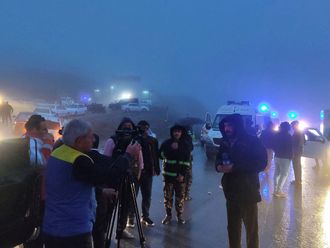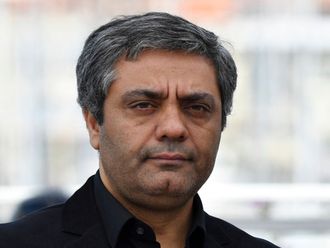Cairo: Egyptian authorities have stepped up a controversial campaign against the niqab with a ban on the full-face veil at the prestigious Al Azhar University and the dormitories of Cairo University, the country's largest public varsity, besides schools.
On Thursday, the Supreme Council of Al Azhar, which oversees Al Azhar institutions, agreed to bar female students and teachers wearing the niqab from entering girls-only classes and dormitories. The ban came a few days after Mohammad Saeed Tantawi, Egypt's top Muslim cleric, reproached a 12-year-old girl for donning the full-face veil at an Al Azhar school and said it is an un-Islamic costume.
The niqab is not obligatory as a part of everyday attire and has more to do with traditions than with Islam, Tantawi told Egyptian TV, arguing that there is no need for young girls to wear it inside classrooms.
His remarks triggered a wave of protests across the country and added to unease over a similar move to bar niqab-wearers from staying at Cairo University dormitories. Hundreds of angry Islamist students this week protested outside the university.
"As a citizen and a God-fearing Muslim, I have the full right to wear the niqab everywhere," said Soad Hassanein, a veiled university student. "Instead of flexing their muscles on us, the authorities should order female students wearing revealing clothes to be decently dressed," she told Gulf News.
Officials at Cairo University, speaking on condition of anonymity, said there were security considerations behind the decision especially since it could be used as a disguise for terror acts.
Tantawi and Minister of Higher Education, Hani Helal, have both come in for stinging criticism for the move. Lawyer Nabih Al Wahash filed a complaint with Egypt's Chief Prosecutor against Tantawi and Helal. Meanwhile, Islamist lawmakers have demanded that both officials be sacked.
Islamist MP Mohammad Al Beltagui said the manner in which Tantawi had expressed his opposition to the niqab was offensive. Similarly, Helal's position against the niqab contradicted the right to personal freedom, Beltagui told Gulf News. The ban on the niqab has, nonetheless, drawn applause from some Muslim clerics.
Those wearing the niqab had misunderstood Islam, said Abdul Moati Bayoumi, a member of the Islamic Research Centre, an influential arm of Al Azhar.
Hafez Abu Saeda, a human rights activist, while admitting that wearing the niqab was a matter of personal freedom, said educational institutions had the right to verify the identity of their female students. Delinquent individuals could use the niqab as a disguise to illegally enter a dormitory or an examination hall to commit unlawful acts, he pointed out.









